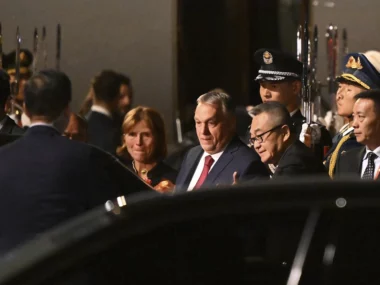Shifting Alliances: The New Geopolitical Landscape of 2023
As the world navigates the complexities of the twenty-first century, the geopolitical landscape has undergone significant shifts in 2023. A confluence of regional conflicts, emerging powers, technological advancements, and environmental crises has reshaped alliances, prompting countries to reassess their foreign policies and international relationships. This article explores the critical developments and implications of these shifts in geopolitics.
The Rise of Multipolarity
For much of the late twentieth century, global politics were predominantly characterized by a bipolar system, primarily influenced by the United States and the Soviet Union, and later a unipolar order led by the U.S. However, 2023 marks a transition toward a multipolar world. Countries such as China, India, Russia, and the European Union have clawed out significant spheres of influence, challenging U.S. hegemony.
China’s Belt and Road Initiative (BRI), which continues to expand its reach into Asia, Africa, and Europe, has enabled it to forge economic partnerships, creating dependencies that bolster its position on the world stage. In response, the United States has focused on reviving alliances with traditional partners in Europe and Asia, particularly in frameworks like AUKUS and the Quad, aiming to counterbalance China’s assertiveness.
Regional Conflicts Reshape Alliances
Certain regional conflicts have catalyzed the realignment of global alliances. The ongoing war in Ukraine, for example, has forced countries to examine their stances on sovereignty, territorial integrity, and energy dependencies. Western nations have united in solidarity with Ukraine, while Russia has sought to deepen its ties with countries that either support its strategies or remain neutral, such as India and certain Middle Eastern nations.
In the Middle East, the Abraham Accords and shifting power dynamics have prompted traditional rivals like Saudi Arabia and Iran to engage diplomatically, reshaping alliances. The resurgence of the Islamic Republic in regional politics is forcing a recalibration among Gulf states, raising questions about security and cooperation that could lead to a new regional order.
The Role of Technology
Technological advancements have also played a critical role in redefining alliances. Cybersecurity, artificial intelligence, and the fight over technological supremacy are at the forefront of international relations. Nations are increasingly forming alliances based on technological cooperation, as seen in the joint initiatives for developing AI regulations and cybersecurity frameworks.
The tech war between the U.S. and China continues to influence bilateral relationships globally. Countries are finding themselves pressured to choose sides, impacting not only trade but also security alliances. Southeast Asian nations, for instance, are attempting to steer clear of becoming pawns in this increasingly polarized environment, striving for a balanced approach to technology and trade with both superpowers.
Environmental Shifts and Climate Diplomacy
The urgent need for climate action has led to the formation of new alliances centered around sustainability and environmental responsibility. The 2023 climate agenda has seen countries coming together to tackle common challenges, transcending traditional geopolitical rivalries. The rise of coalitions like the Coalition of Climate Ambition, which includes nations from both developed and developing regions, illustrates a willingness to set aside differences in pursuit of a shared goal.
However, tensions also persist, particularly regarding resource allocation and energy transitions. Countries rich in fossil fuels face pressure to diversify while adapting to international climate commitments. As the battle against climate change becomes central to national strategies, we can expect to see more alliances forming around green technologies and sustainable practices.
Conclusion: A Fluid Future
The geopolitical landscape of 2023 is characterized by fluidity, as nations increasingly navigate a complex web of alliances influenced by regional conflicts, technological competition, and the pressing imperative of climate change. This shifting environment presents both challenges and opportunities for global diplomacy.
As countries continue to adapt to these changes, the nature of international relations will evolve—demanding new strategies, innovative partnerships, and a commitment to dialogue. In this new landscape, flexibility and adaptability may prove crucial for nations striving to secure their interests in an increasingly interconnected and unpredictable world. The alliances of tomorrow will be critical in determining not only national security but also the path toward a more stable and equitable global society.











